Originally published on 6th April 2016 Last updated on 23rd July 2019
Hello friend, family member, work colleague or doctor of someone who lives with an underactive thyroid or hypothyroidism. You know someone very strong, battling an often difficult disease.
If you’re not a medical professional, you’re probably wondering what exactly an underactive thyroid or hypothyroidism is, or how it affects someone who lives with it, so I’ll do my best to explain it as simply as possible.
You’ve likely already heard some things about it, for example that it is an excuse people use for being overweight. But this is far from what it really does to someone. In reality, hypothyroidism does so much more to its host. It hurts when we see people use the term “thyroid problem” as code to describe someone who is overweight. It also belittles the condition. It’s so much worse than just weight gain, although this is still a legitimate symptom.
The thyroid gland is located in the neck and its hormones are required for every cell and function of the body. An underactive thyroid means just that; it’s under active. It’s slow and sluggish and not performing properly, meaning a slow metabolism that causes weight gain and very little energy, as well as lots of other symptoms. The same goes for those who are hypothyroid through having no thyroid gland at all.
For the thyroid gland to function properly, we need the right amount of thyroid hormones in our bodies. If we don’t have these, it affects our energy levels and lots of other things, especially things you probably don’t even think about. For example, sleep cycles, body temperature, alertness, thinking clearly, appetite and fertility, to name just a few.
Hypothyroidism is most commonly caused by an autoimmune disease, such as Hashimoto’s Thyroiditis or Graves Disease. Sometimes it is caused by having treatment for hyperthyroidism (an overactive thyroid) or having had treatment for thyroid cancer. The treatment often used for these, radioactive iodine treatment or a thyroidectomy, can result in the patient becoming hypothyroid. So any of these could have caused the person you know to have the condition.
You may even know another person with hypothyroidism, who takes medication for it and is seemingly OK, but this isn’t the same for all thyroid patients. Actually, a lot of thyroid patients find it’s not easily treated and controlled. The other person you know may not have told you the full extent of how it affects them, either.
Hypothyroidism can cause mental health conditions like depression and anxiety, as well as physical symptoms like loss of hair, brain fog, aches and pains throughout the body, constipation, an increase or decrease in blood pressure and even scary heart palpitations and loss of appetite, to name just a few.
You can imagine that a lack of sleep, or needing to sleep lots but actually not feeling any better when we do, may make the simplest of everyday tasks difficult or impossible for a thyroid patient.
The best way I can describe hypothyroidism symptoms is by comparing it to the flu. The fatigue and aches are very similar. You know how frustrated, fed-up and useless you feel when you’re ill and have things to do? That’s how it can be to have hypothyroidism. Except we have no choice but to work, run a family, house, maintain a social life (or at least try to) and try to maintain a positive attitude towards life. Combine it with all of these symptoms here:
- Constipation
- Depression
- Slow movements, speech and thoughts
- Itchy and/or sore scalp
- Muscle cramps
- Dry and tight feeling skin
- Brittle hair and nails
- Pain, numbness and a tingling sensation
- Irregular periods or heavy periods
- Brain fog/confusion/memory problems
- Migraines
- Hoarse voice
- A puffy-looking face
- Thinned or partly missing eyebrows
- Itchy eyes
- Poor stamina
- Long recovery period after any activity
- Arms feeling like dead weights after activity
- Inability to exercise, or withstand certain exercises
- Tendency to be overly emotional
- Inability to tolerate cold – cold hands and feet
- Poor circulation
- High or rising cholesterol
- Acid reflux
- Easy bruising
- Swollen legs that impede walking
- Shin splints
- Difficulty standing on feet
- Joint stiffness and pain
- Fertility issues
and you get the picture of what it’s like.
So, you can imagine that sometimes, thyroid patients living with these have to cancel plans last minute, through no fault of their own. When they have plans to do something, they tend to look forward to it, as it can take their mind off their health condition or make them feel like they’re taking back some control. So if they then have to cancel on you due to hypothyroid symptoms and struggles, you can imagine how devastated they likely feel. The next time you think they might be making up excuses, being lazy or being a cop-out, please realise that when this is their life, they have no real control and they are not to blame.
We didn’t choose to have thyroid disease.
Thyroid patients are often not easily understood by those around them. We’re made to feel like this condition isn’t a big thing to live with as it is often not taken seriously. Most people think it’s an easily treated condition, when in reality, it is none of those things for many patients. We’re not hypochondriacs, it really does cause lots of symptoms.
Yes, for some thyroid patients they do OK on standard thyroid medication but for many, they still struggle.
Even some of our friends, family and work colleagues (this could be you) overlook how serious it is, and how detrimental it can be to our lives. Even some doctors look at it like this. Not all, but a lot. A lot more than we should have to experience when fighting to regain some quality of life.
Many patients struggle to actually get diagnosed for years, with doctors brushing it off as depression, chronic fatigue syndrome or fibromyalgia, among other things. Doctors regularly misdiagnose hypothyroidism. Even when we are diagnosed and started on medication, we often find it takes some time to feel better, or that doctors will not consider another type of medication if the first one they try doesn’t work for us. A lot of us even have to turn to going private for our healthcare or sourcing the medication ourselves. So don’t assume that your friend, family member or work colleague is ‘OK now they’ve got medication for it’. Instead, please ask us.
Can you imagine how lonely we feel sometimes?
Alone in our struggles and feeling like no one understands?
What we would like from you is to be the person who understands what we’re going through, and that even though it’s not a well recognised disease, it is a real, difficult, life-changing condition. It often destroys, changes and alters lives forever.
The best thing you can do is to be there for your friend, family member or work colleague who has this disease; all we need you to do is listen, and learn about the struggles and challenges we face. We don’t expect you to know everything, but to be understanding and sympathetic when we are struggling. You could help the thyroid patient in your life do as much as possible to improve their health, be it encourage them to seek out a doctor who will listen, or do research with them to learn more about how they can help themselves feel better.
When they read a new book, read it with them. Thyroid brain fog can make us forget a lot of what we read! Encourage them to pick up new thyroid books. Be the person who helps them to find time for rest, self-care and time to enjoy what they love doing most. It might be helpful for you to read about other patients’ experiences, too. Ask us if we need help with anything and ask us how we’ve been feeling. It’s good to know someone cares.
If you live with a thyroid patient, don’t expect too much from them in daily life. I’m not saying that all thyroid patients are incapable of doing anything, far from it actually, but rather that you shouldn’t expect them to do as much as they used to. Instead, let them rediscover their limits and stamina.
You may have to take up more of the housework and take initiative on things that they used to be in charge of in order to help. Tell them when they’ve done enough for the day and encourage them to rest. Bring them drinks, run them a bath, or simply ask if they need help getting up the stairs or putting their shoes on. Go with them to doctors appointments and help them get the right treatment for them. Encourage them to find online support groups and networks to meet others also living with the disease. Often experience and advice can be shared among patients, that is invaluable to helping make the condition that little bit easier to live with.
I have also covered how it may impact dating, here.
If you’re a doctor of a thyroid patient, please listen to them. I don’t by any means hate doctors, but it frustrates me that a lot won’t be open-minded. Don’t assume the ‘one size fits all‘ T4-only medicine will work for them. Listen to their ideas and suggestions and don’t make them feel small. Take time to explain things to us and give us time to explain everything to you. Read books we suggest and be open-minded. Sometimes we feel intimidated by a medical professional, but when we do our own research we often would like to share our findings with you. Refer us to an endocrinologist or another doctor if you think they’d be more help to us. If we can find doctors who will work with us and listen to us, it would be the perfect solution. Related post: 11 ‘Harmless’ Things Said by Doctors That Actually Hurt Thyroid Patients
Something as simple as reading this letter, means the world to us. It means a lot that you want to understand our situation and help us, or at least be someone we can talk and rant to, and rely on to listen to us when we’re having a hard day.
Rachel, The Invisible Hypothyroidism
Read more posts in the ‘Supporting a Thyroid Patient’ category
Thyroid patients: What else would you add?
This excerpt is from the book You, Me and Hypothyroidism: When Someone You Love Has Hypothyroidism. A book for those who know someone with hypothyroidism, such as a spouse or partner. More information on libido as well as many other topics can be found in the full book.
A Book for Our Children:
Thyroid Superhero: A Kid’s Guide To Understanding Their Grown-up’s Hypothyroidism, which helps children to understand their caregiver’s thyroid medication, flare days, symptoms and much more.
* * *
THe following links HAve BEEN SPONSORED BY ReGAIN.US.
If you are living with someone with hypothyroidism, do remember that there is support out there for both the thyroid patient and their family. As well as face to face counselling, online options are also quite popular right now. Regain.us offer online couples counselling that you can do in the comfort of your own home (perfect for when living with chronic illness). See: https://www.regain.us/advice/counseling/use-online-couples-counseling-to-get-your-relationship-back-on-track/ for more info.
You can click on the hyperlinks in the above post to learn more and see references to information given.

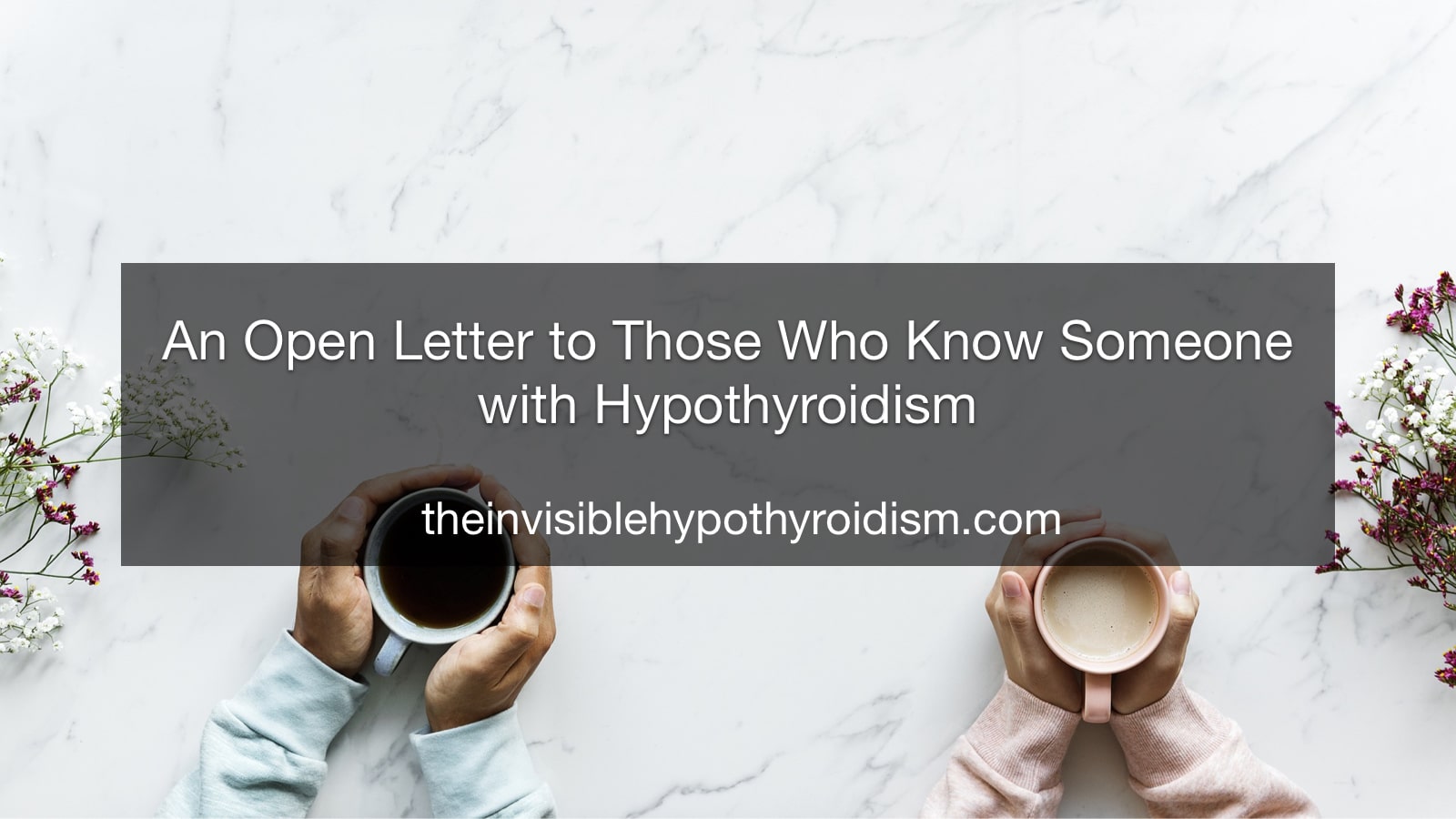
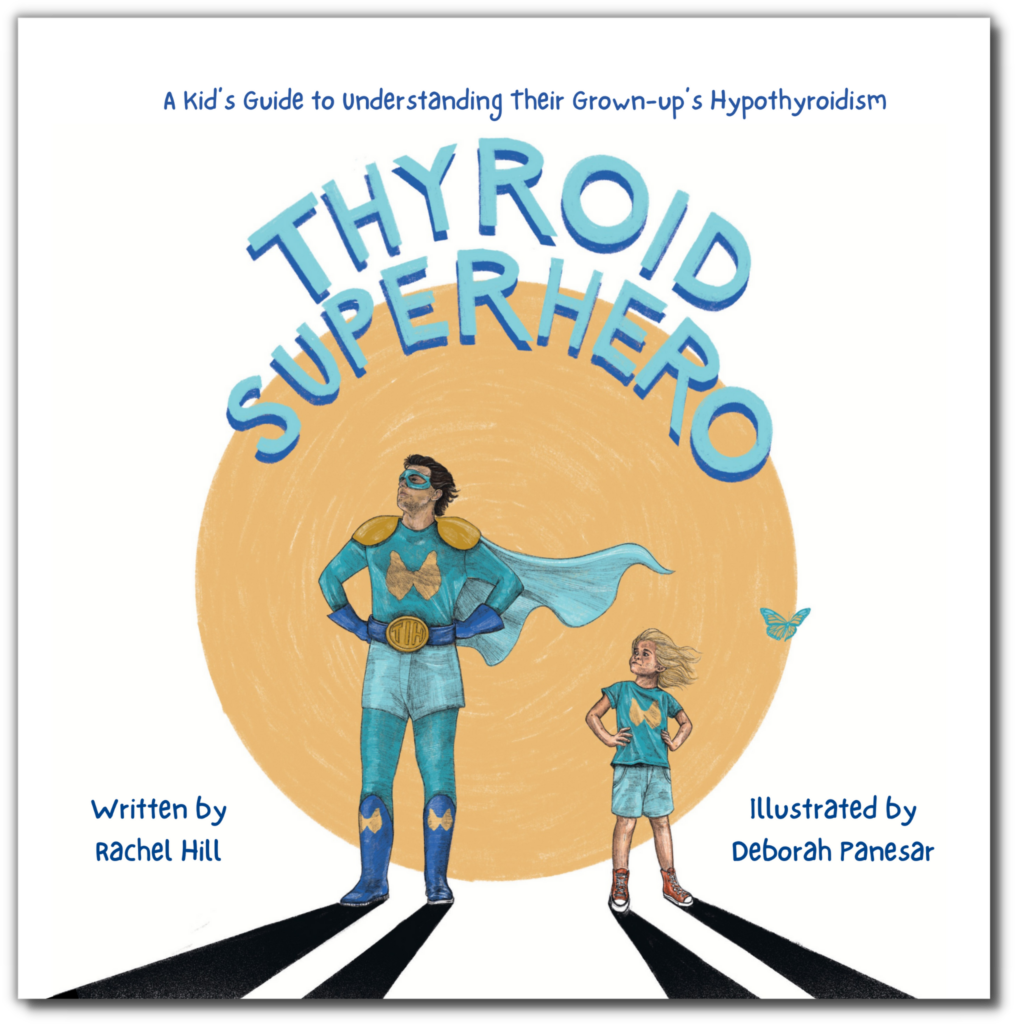
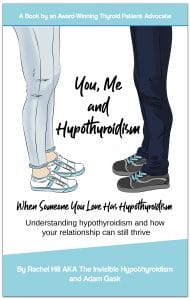
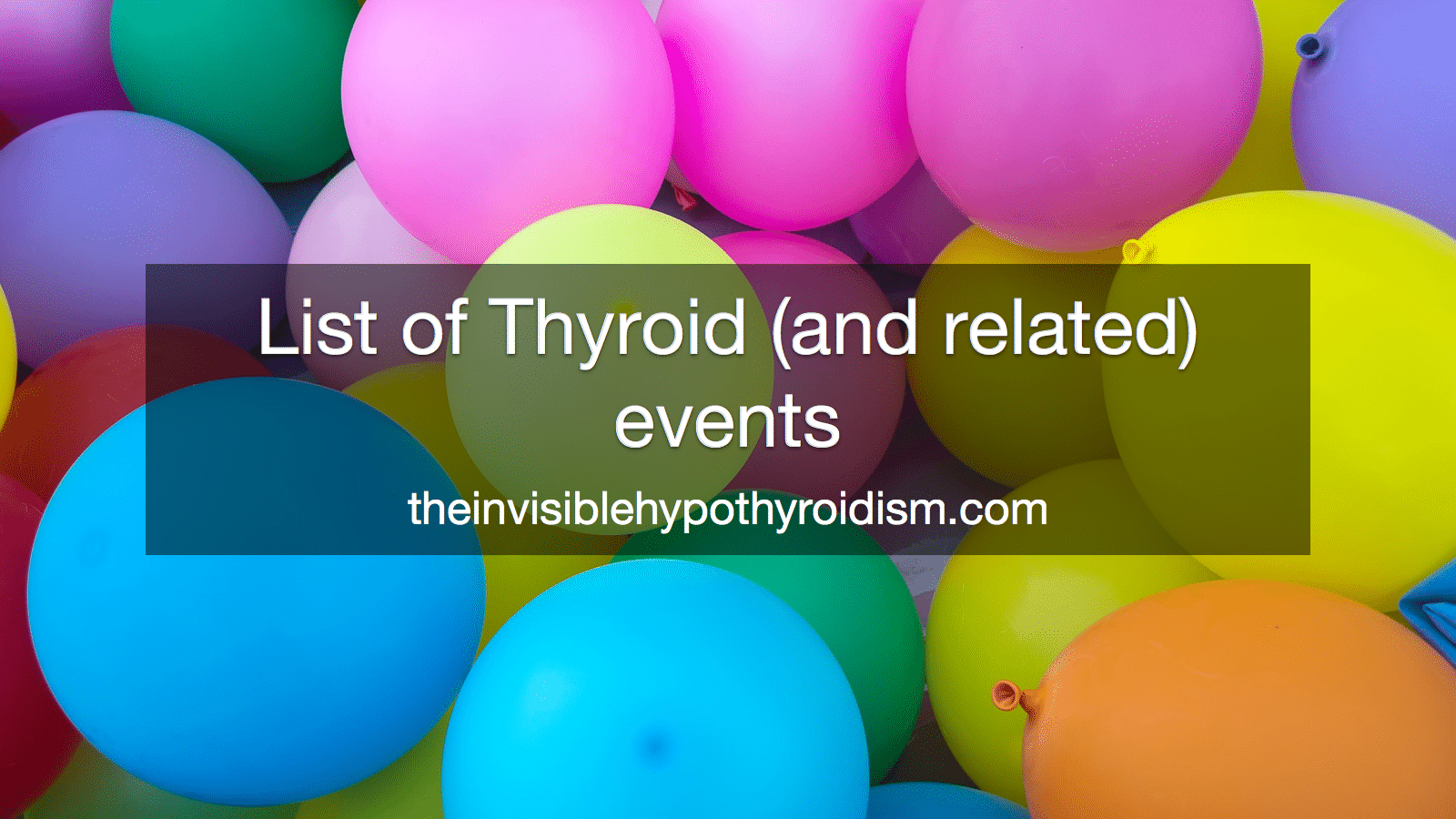

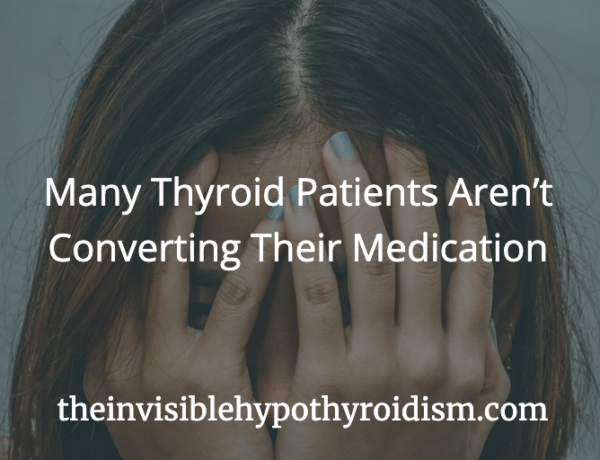

13 Comments
Lisa Boyle
June 12, 2022 at 6:36 pmI’ve been too sick to function for 2 years. Doctor did testing back then and all they found were 2 thyroid nodules. I’m getting worse by the day and Doctor refuses to do any more tests. Can’t find another doctor who’ll help. My doctor tells me it’s just anxiety…
Emily
February 20, 2021 at 10:43 pmI’ve just read your blog and had a good cry as I’ve just had a light bulb moment!
I was diagnosed at 21 and for the first few years I was on different doses of Levothyroxine until my levels became stable.
I continued to take the medication and just put my problem away in a box on the top shelf as it was now in hand.
I’m now 37 married with two beautiful children, 2 & 4.
I started to look into my symptoms over these last few weeks and realised everything I was going through was related once again to my thyroid.
I was blaming my low moods to do with post partum, my tiredness because I’m running after two little children in lockdown 3, my low sex drive because of the tiredness, my weight gain due to children.
I’ve been pointing all my symptoms in relation to having children when in fact I have a chronic illness which I’ve chosen to neglect for so many years!!!
My husband and mum have just read this letter and agreed with everything, it’s like I’ve wrote it myself!
Thank you so much! I will be contacting my doctors first thing Monday for bloods and looking into ways I can actually help myself!
From a very emotional but happy hypothyroid survivor ☺️
Nessie
July 25, 2020 at 6:02 amHello! I felt good knowing that after all I’m not alone that someone out there have gone through the same thing as I did. I was 17yrs old when I was diagnosed with papillary carcinoma and its really hard to deal with this since back then I’m graduating in High school and entering college. The stress that I had to go through with the ongoing treatment and surgery and at the same time applying for college is too much for me to dealt with.The sad thing is that I dont know who to turn to, people here doesnt have that much knowledge of this condition, they just stereotype it as goiter and that it’s just a lump in the neck that grows. It’s been 2yrs now after I was diagnosed and it’s never been better. Thank you for this . I’m so happy to encounter this letter and this website as well. The things that Ive been through seems valid after reading this
Taminah
March 22, 2020 at 1:40 pmThank you for this amazing letter you wrote about what people with hypothyroidism face. It’s a relief to know there are people like me oiut there in the world.
I’ve had hypothyroidism since birth and been living with it for almost 24 years now. So i never exprerienced life without it. My biggest struggle is slow speech and thoughts. It often makes me feel like im stupid and im unable, which is cause that I didnt have a lot friends in childhood or now. My closest friends are my family and relatives and i also may have some friends but these friendships are more of acquaintances.
cora zaki
August 7, 2019 at 1:20 amMy husband of 36 years has just been diagnosed with under active thyroid and his personality has changed drastically he no longer even wants to be married or doesn’t know if he wants to be married I have to walk on egg shells around him it’s been very difficult I hope those help for me or a support group because sometimes I’m losing my own sanity as for some reason nothing I do is right but I know it’s a sickness because he’s an amazing man and I love you very much but I can only take so much and I need help or some type of support to get through this and keep my marriage together.
Ristan Eunique
July 31, 2019 at 12:36 pmWow thank you for creating this article. It lets me know that I’m not alone.
Barrett Liszewski
July 31, 2019 at 12:27 pmHi , I do believe this is an excellent blog. I stumbled upon it from Yahoo, from your article over there.
Rachel Hill
August 1, 2019 at 12:20 pmAh, thank you! I do write for Yahoo sometimes 🙂
Francine
December 21, 2018 at 5:07 pmI just want to thank you for writng this letter Rachel. Its been a real eye opener. I am of many people who suffer from Hypothyrodism and even i dont realise how serious this is, but your letter has helped me.
I am on medication 150mg of Levo, and the doctors cannot seem to find the right balance of medication to give me. I get blood tests normally every 3 months but this time, I have to go back when 6 months is up.
Reading your letter was very emotional to hear, but as i say an eye opener. So Thank you again
jo
December 9, 2017 at 6:35 amI can relate to a lot of those symptoms even being on medication for the last 4 years I still have terrible aches and pains mostly in my legs and worst at night , leg cramps , struggling with weight and tiredness just to mention a few..
Rachel Hill
February 26, 2018 at 6:12 pmHi Jo, sounds like you’re not on optimal treatment. Have you had a full panel done recently?
Kelley
May 26, 2017 at 3:03 amOh My Gosh!!! I just found this and it couldn’t have come at a better time!!!
My Hypothyroidism is Congenital but just recently turning 52 there was no testing in Massachusetts when I was born.
Not being diagnosed until I was 8 needless to say it put me way behind. Sadly because you can’t see my CH to look at me people just labeled me as lazy or a loser as recent as tonight. 2.5 years ago I crashed. Well, now I’m labeled the crazy lazy one. Come to find out and in hindsite now I know it was creeping up on me. It sucked to go through what I did but now knowing what I do I know somehow I’ll figure out a way to thrive not just survive. Thank you so much for writing this and I am hoping it’s okay if I forward this. It’s like you read my mind.
karasartisticaladventures
August 6, 2016 at 7:49 pmhi, I hope you don’t mind i just put a link to this post, in a post i just made..my post is mainly about Pernicious Anaemia, but i have UAT too and it’s connected, you sum up perfectly the list of rubbish symptoms we have to put up with..saved me a post! ..We do have to conserve energy!
Thankyou for writing such an informative blog on the subject of underactive thyroids!